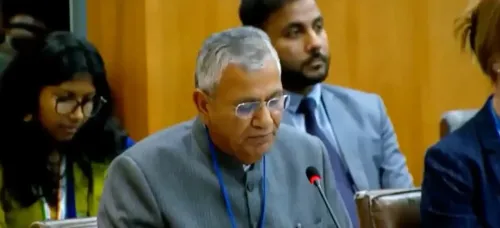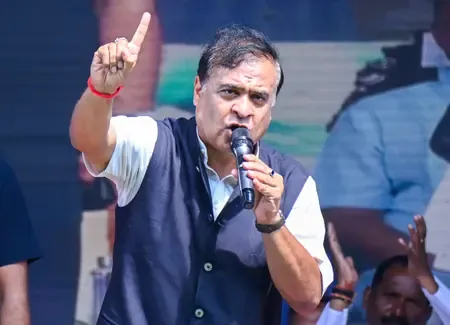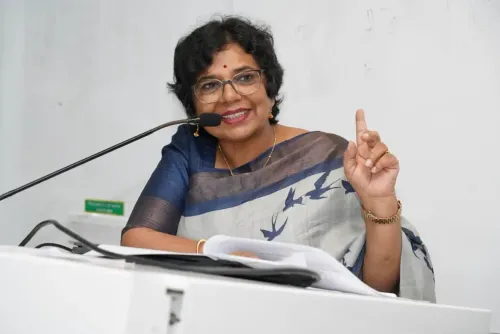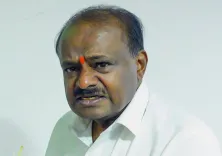Should the SC Regulate Explicit Content on Social Media and OTT Platforms?
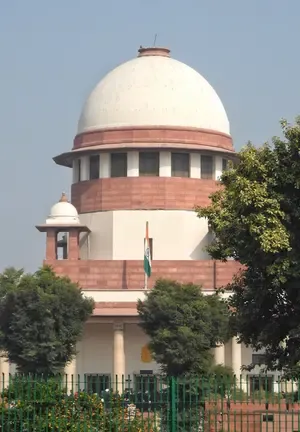
Synopsis
Key Takeaways
- Supreme Court to examine petition on regulating explicit content.
- Notice issued to major social media and OTT platforms.
- Concerns raised about the impact on youth and societal values.
- Government's previous actions deemed insufficient by petitioners.
- Importance of Article 38 highlighted in the context of social welfare.
New Delhi, April 28 (NationPress) The Supreme Court has decided to review a petition urging the government to implement urgent and robust measures to control explicit content on social media and OTT platforms.
A bench comprising Justices B.R. Gavai and A.G. Masih has issued a notice to the Centre, noting that the petition addresses a matter of significant concern regarding the prevalence of objectionable, obscene, and indecent materials on these platforms.
Notices were also dispatched to Netflix, Amazon, Ullu, ALTT, MUBI, Google, X Corp (formerly Twitter), Apple, and Meta, in addition to the Union government.
The Justice Gavai-led panel urged the Centre to pursue more legislative measures to curb the rampant distribution of obscene content online.
Solicitor General Tushar Mehta, the government's second-highest legal official, responded by stating that existing regulations are in place, with additional ones being considered.
Upon issuing the notice, the apex court opted to consolidate the petition with similar pending cases.
The public interest litigation (PIL) argues that the unchecked distribution of obscene, sexually deviant, pedophilic, and bestiality content—including child pornography and soft-core adult material—has contributed to a disturbing rise in crimes against women and children, adversely affecting the mental development of young individuals.
"If this unregulated proliferation of obscene material goes on, it could lead to serious repercussions for societal values, mental health, and public safety," the plea, submitted through advocate Path Yadav, states.
The petitioners highlighted their previous attempts to communicate with authorities, which have not resulted in any effective action.
It claims that the government, despite being fully aware of the seriousness of this issue, has failed to undertake any substantial measures to regulate this threat. The petition further argues that the lack of effective oversight has enabled these platforms to promote content that nurtures unhealthy and perverse tendencies, particularly among impressionable youth. The constant exposure to such material can distort perceptions of sexuality, encourage deviant behaviors, and escalate the frequency of sexual offenses against women and children.
Moreover, the petition points out that young people, especially children and teenagers, are increasingly susceptible to the psychological ramifications of such exposure, which can lead to a normalization of sexual violence, the objectification of women, and distorted understandings of human relationships.
Citing Article 38 of the Constitution, the PIL asserts that it is the government's responsibility to enact laws for the welfare of the populace and to safeguard the social order.
Maintaining social order is only possible when the distribution of offensive and pornographic content is effectively restricted within society, the petition argues.
It contends that the unrestricted streaming of sexually explicit content on OTT and various social media platforms, readily accessible 24/7 on mobile devices, leads to severe sexual crimes against women and children.

